Fado music is one of the tourist attractions of Lisbon, to be enjoyed over dinner or bars where various singers will perform a couple of songs each, always in Portuguese. Guidebooks tell about its history in the Mouraria, an area once known for bars frequented by pickpockets and prostitutes, and Severa the famous fadista of the area. Amalia Rodrigues is the best-known 20th Century singer, who became a national icon during and after the ditadura which only ended in the Carnation Revolution of 1974. She and others and their costumes feature in the Fado Museum.
But Fado was also one of the ‘Three Fs’, Fatima (the shrine), Football and Fado, which cemented the ideology of the Salazar dictatorship, and for this reason many people rejected it after 1974.
Some people view the music of the Fado Houses as merely something for tourists to consume, while the ‘real’ Fado has died or is in decay. Then there is the paradox that the ‘traditional’ Fado community is very conservative, especially about gender issues, despite the origins of the music being in the margins of society.
These and other questions are the focus of a new documentary film As Fado Bicha, by the French director Justine Lemahieu which was shown at the Indielisboa Film Festival recently. As Fado Bicha are João who is gay and Lila who is a trans-feminine person, and they play a variety of instruments not typical of conventional Fado. And like Mariza, who broadened her music beyond its conservative environment, they needed to play outside Portugal to gain a following.
The word ‘Bicha’ in Portuguese is still a derogatory term against gay people, like Queer was in English.
Justine made the film with the benefit of her anthropological studies, resisting the tendency to make easy judgements about contemporary Fado or its history which is steeped in mythology, and needs a critical appreciation of the kind that Roland Barthes advocated.
As Justine says: “Depending on places, social contexts and who is present, the gender rules are not necessarily so rigid. They vary and they are changing. I am sure that the work of Fado Bicha and other artists have an important role in these changes”.
I was able to discuss these issues in a fascinating conversation with João, Lila and Justine, before a show of the new play A Casa Portuguesa (The Portuguese House) which is playing at the Maria Matos theatre, in which the duo have leading roles.
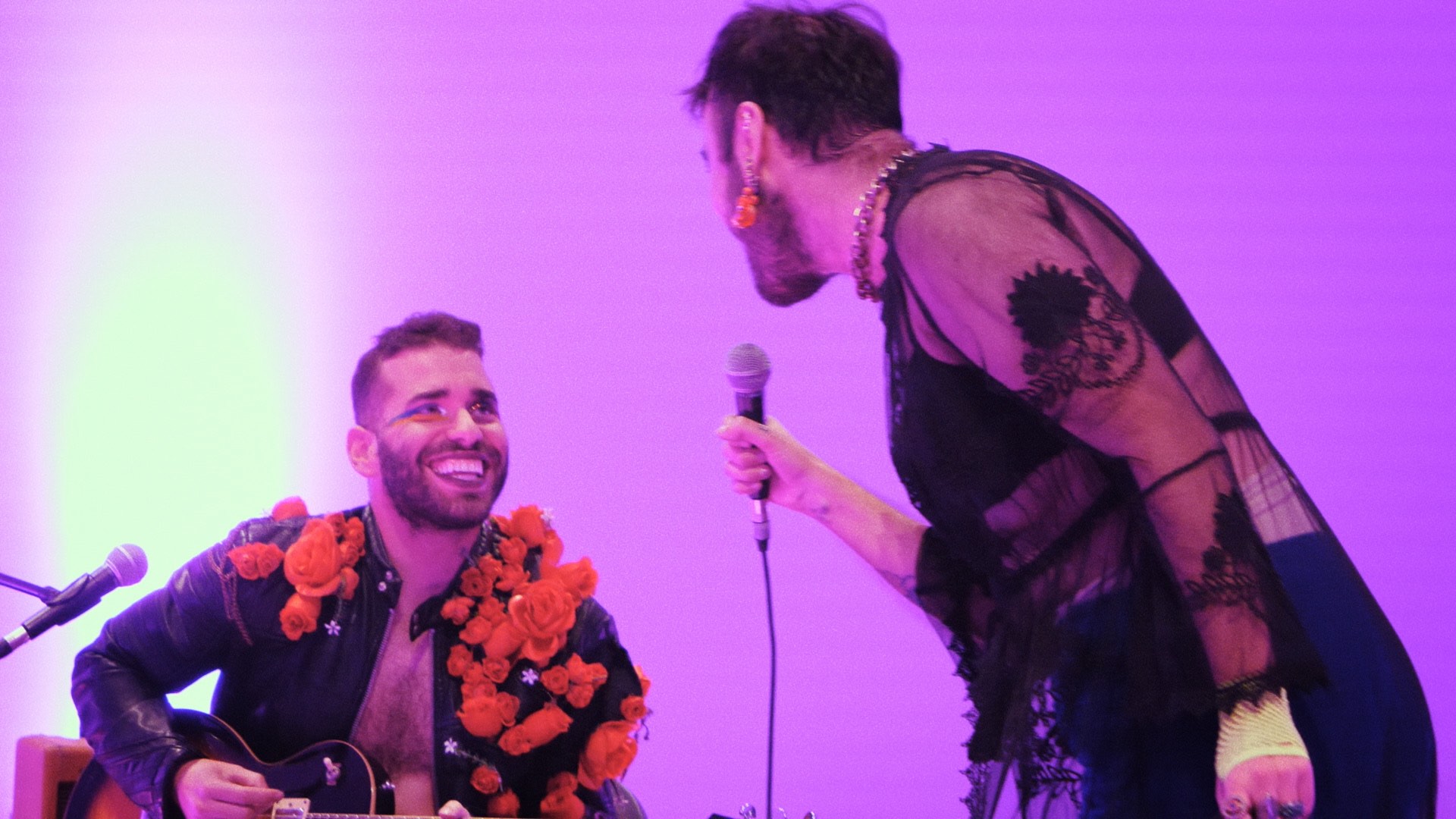
Several of your previous films have been about the experiences of migrants – what led you to this topic?
As Fado Bicha is my second full-length film after Sousa Martins (2018). Previously I was the script-writer and editor for two documentary features directed by Natalie Mansoux dealing with social injustices connected with migration. Via de Acesso was about the struggle of migrants against demolition of their homes in Amadora by the local authority, and Deportado deals with the forced expulsion of working-class Azorean men who had lived in the US since infancy.
I came to Portugal when I was 24, and trained for several years in the Solidariedade Imigrante association, and was part of a group of activists fighting for the right to housing in the marginal areas of Lisbon, and there I met Natalie Mansoux.
How did you meet Joao and Lila?
I met them in 2019. They gave a concert in a very simpatico bar near where I was living in Lisbon. Their music, their aesthetics and their performance had a big impact on me, and I knew I wanted to film them. We met a few days later and began to organize the first film sessions.
Your adopted home is Portugal – do you have family roots here?
No, but after 20 years here, I feel a strong cultural belonging in terms of feelings, sensibilities, rhythms, and connection with the landscapes, the tempo of life and the language… I feel profoundly French, yet I feel I grew up in France, partially disconnected from my most intimate origins. Both my grandmothers were from Brittany, a place I only learned about in fragments, their ways of cooking, their body postures, and above all an awareness of many pains that they held in silence.
After university, maybe from these feelings and as a child having to fight to keep myself standing in shifting sands, I had to invent new roots to grow from and I found this possible in Portugal.
Why did you choose Fado? At times your music reminded me of Rap.
Joao: Really? It’s true in the sense that our lyrics are political for marginal people showing their lives. Fado was just natural for us. Before Fado Bicha we’d already played in Fado houses in Lisbon. When we met, she’d already done two shows using the name Fado Bicha using Karaoke and acapella style, in a small bar in the Alfama called Favela LX, which is not there any longer. We found we had friends in common. The name sounds like a deliberate contrast of conservative and underground, but it didn’t happen like that. She was invited to perform by the owner of the bar, another bicha, from Brazil, after she told him her plans to experiment using fado. She feels that Fado has a very feminine energy and wanted to perform in drag which wasn’t allowed in the Fado school, only women could sing songs written for women. We created a way we could perform in our true identities. The essence of Fado which began 200 years ago among poor people, criminals and sex workers, was to sing their own stories. Later, people sang stories that were not their own, especially love between a man and a woman, which is not authentic for us.
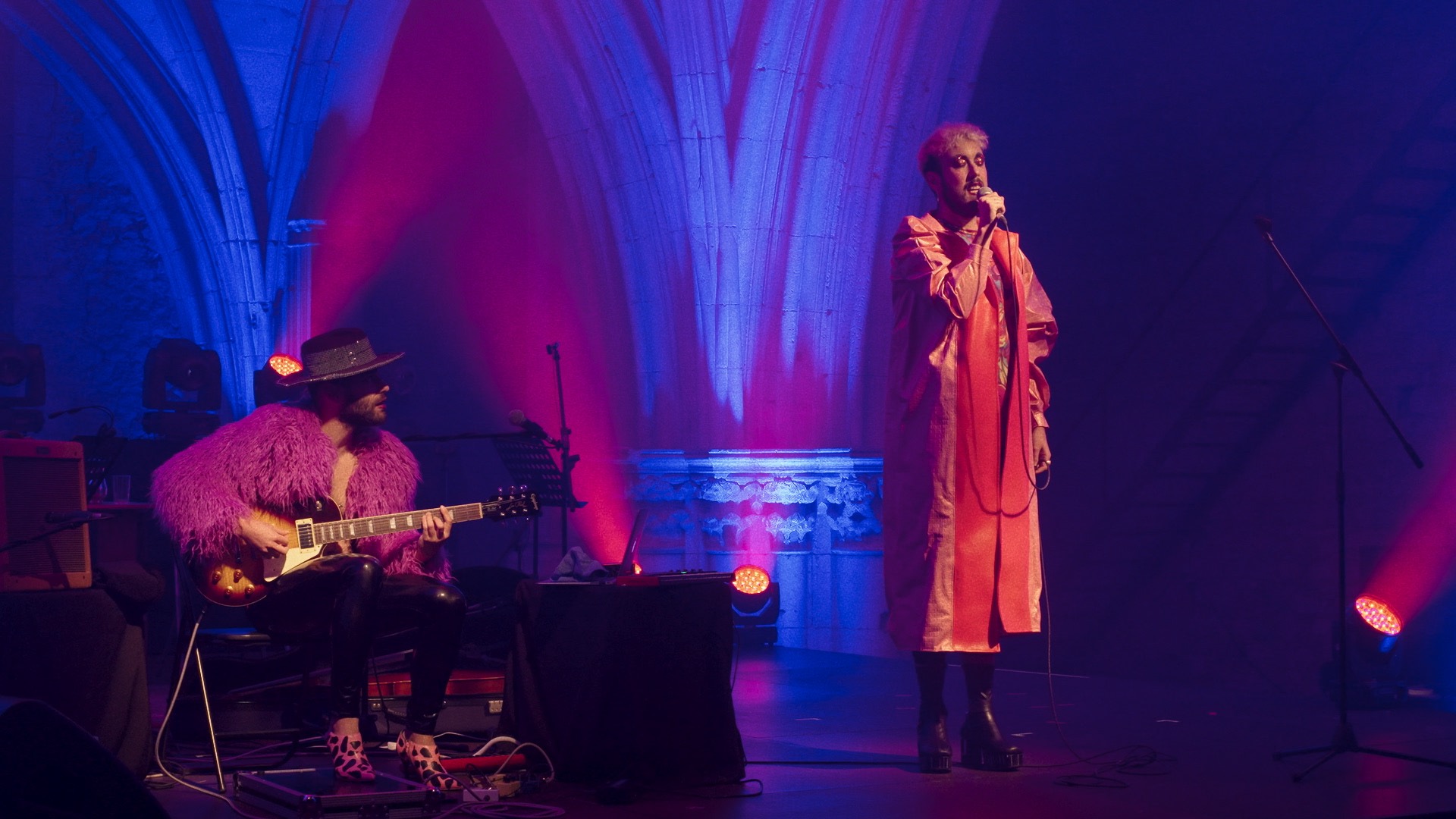
The traditional Fado community is very resistant to anything new – as Mariza found – and both your lyrics and instruments, and Lila’s makeup are non-traditional. Are things changing?
Lila: My experience in Fado houses is quite limited. I enrolled in a Fado school but went there only twice, because I would not be accepted singing women’s songs. Although after I insisted the teacher was surprised and said it was much better than he’d expected. But although the atmosphere in Fado houses is informal, I found quite conservative and also very competitive, even though it’s mostly local people who sing there. I was surprised, expecting a much freer and warmer atmosphere, because I loved the music, but I’d never become familiar with the culture.
I left the school because of the gender issue but mostly because I didn’t want to learn in an environment where I felt strange and stressed.
None of my friends liked Fado and I’m quite surprised how I knew I could find myself singing it. I used to think it was because I concentrated on the music and ignored the other problems, but then I realised that the conservatism is something that was imposed on Fado by social and political dynamics over time, specifically during the Dictadura. I feel connected to an essence that is older and much deeper.
Some songs like Barco Negro were also considered too explicit by the censors, but today they wouldn’t raise an eyebrow.
João: When you see Ronaldo’s picture being promoted next to Mariza's you see that the conservative and patriotic aspect has come back, but I think singers like Mísia, Mariza and Carlos do Carmo have recreated a kind of Fado that erased the links between fado and fascism in people's memories. And since then, Fado has changed with new instruments like drums, dancers on stage, bringing it closer to Pop music.
Lila: It’s still an issue for purists to call our music Fado, but in general people are more understanding. A bigger issue was our name Fado Bicha, our gender expression, having swearwords in our lyrics, or using identity words like Bicha.
When you have to disrupt expectations because the official canon won’t accept you, you start to feel carried along by the flow, and the people you work with. We met an electronic music specialist, so we thought “OK let’s go with that”.
Do you have a problem performing for tourist audiences who are led to expect ‘traditional’ Fado?
Lila: I have a problem with the touristification of venues and cities in general, by neo-capitalism, and Fado is just one thing that suffers.
One of my dreams is to open a Fado house that is not dependent on either money or tourists, where people can come together to play, write lyrics and use it as a space of political empowerment. If a new ditadura started today, ‘traditional’ Fado would not be seen as a problem. In 1926 Fado houses were places where disruptive ideas were discussed as well as music played, and that kind of thing doesn’t exist today. These places were Bohemian and grassroots, where people came from different social classes and escaped the ruling norms of the time. Now they are massified and standardized, they replicate the same ideas over and over, they produce knowledge that is merely a replica of what was produced say 70 years ago. Fado is so Portuguese and has a rich and diverse history and I would love these places to work in a different way, but I know that the current political and economic constraints of Uber Capitalism make it impossible. We still have to depend on what the people running the Fado market think is what tourists want to see.
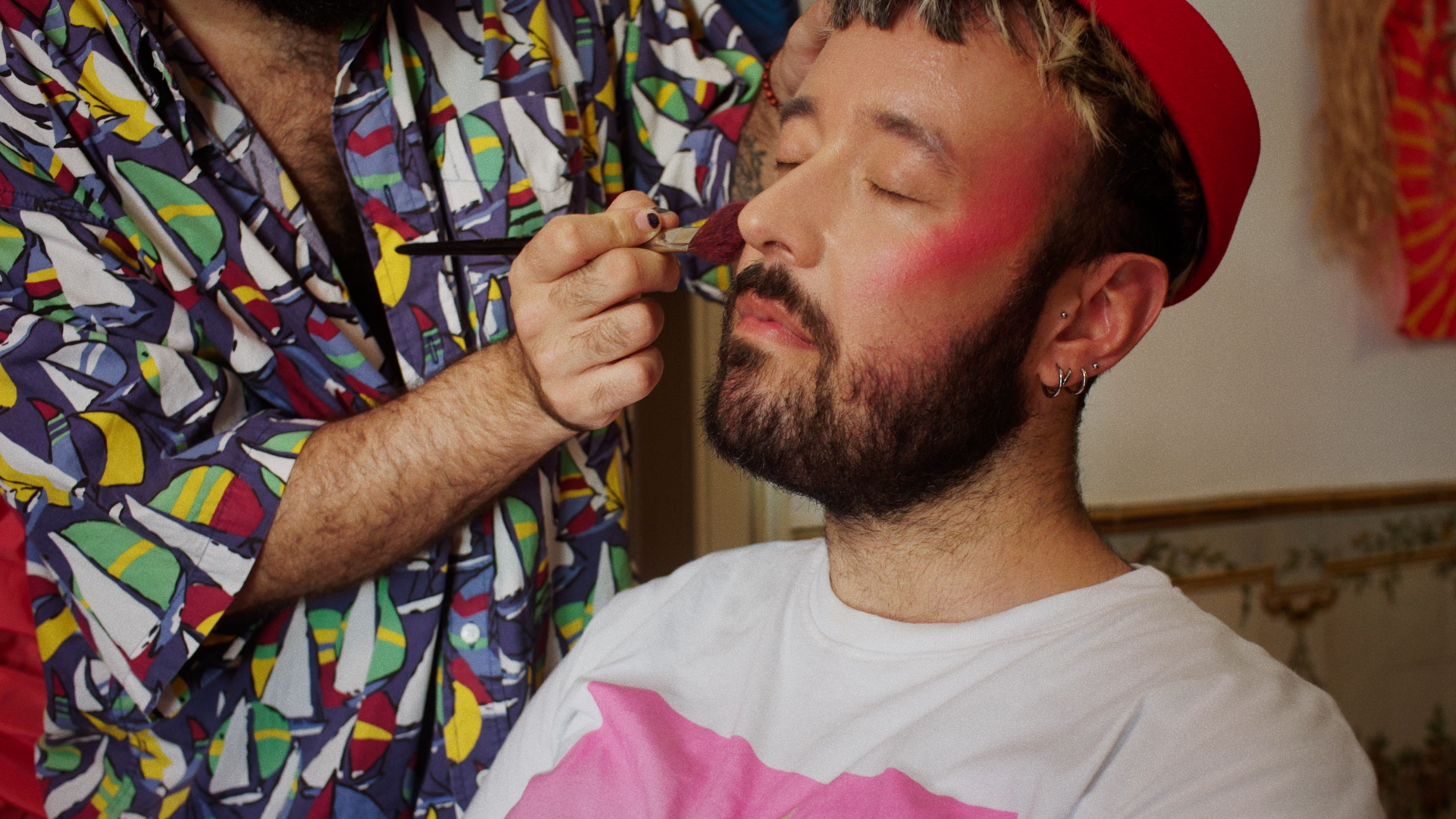
Can we say that there are two currents within Fado, one of the marginalized precarious worker, and a Bohemian strand which is rich people involved in ‘high culture’?
Lila: It doesn’t exist now, but in the 19th Century rich men liked to go to Fado houses, and they brought that music to the rich salons. They could leave their wives to look after their children while they went somewhere more exciting than what was available within their class of society, and where they could meet other women and get drunk. It was like the bottom deck of the Titanic! Where the conventions of the wider society were erased at night. Fado was always between the two currents. The Fado that was played in the Salons was with piano with very religious and conventional lyrics. It happened with many musical genres. People liked to go to Samba schools in the favelas in Rio, and the rich people started to play music that was influenced by that music. And in the end, it was only Bossa Nova that became famous.
Justine: Through studying for a Master in Anthropology, I discovered literature and research on the history of Fado, and on gender studies. The artistic work of Fado Bicha made me question the Fado rituals from a gender perspective. For my fieldwork I took part in Fado classes for a year in the same school where Lila had left. In Fado houses and associations I was able to observe the rigid gender codes which remained active in the Fado culture in Lisbon and in general, the explicit or latent machismo mechanisms, that conditioned the postures and interactions between people, in the so-called ‘traditional’ world of Fado. A performance space where the gender models of the wider society are reflected in an exaggerated way.
But it’s also important to resist the temptation of adopting a reductive or prejudiced image of the ritual of Fado, whose history is long, complex, constantly changing and made up of many levels and contradictions. In present-day Lisbon the singers and the songs reproduce the codes inherited from the Salazar regime, but are also infused with different nuances, subjectivities and audiences and diverse discourses. Anthropology taught me to deconstruct our tendencies to judge or generalize, and instead to observe, rather than project my presuppositions about certain contexts.
For example: in the Fado school I attended, certain people expressed a desire to sing ‘Men’s Fado’ or ‘Women’s Fado’ against the habitual rules; in other associations there were people who sang in sports clothing, which provoked indignation in some audiences, but in other cases was well accepted. A woman Fado singer explained to me that she wore trousers because she felt more comfortable and didn’t want to be obliged to wear a skirt.
And contrary to the rules in other spaces, Fado performances are one of the few places where men have the right to cry, whether on the stage or in the audience.
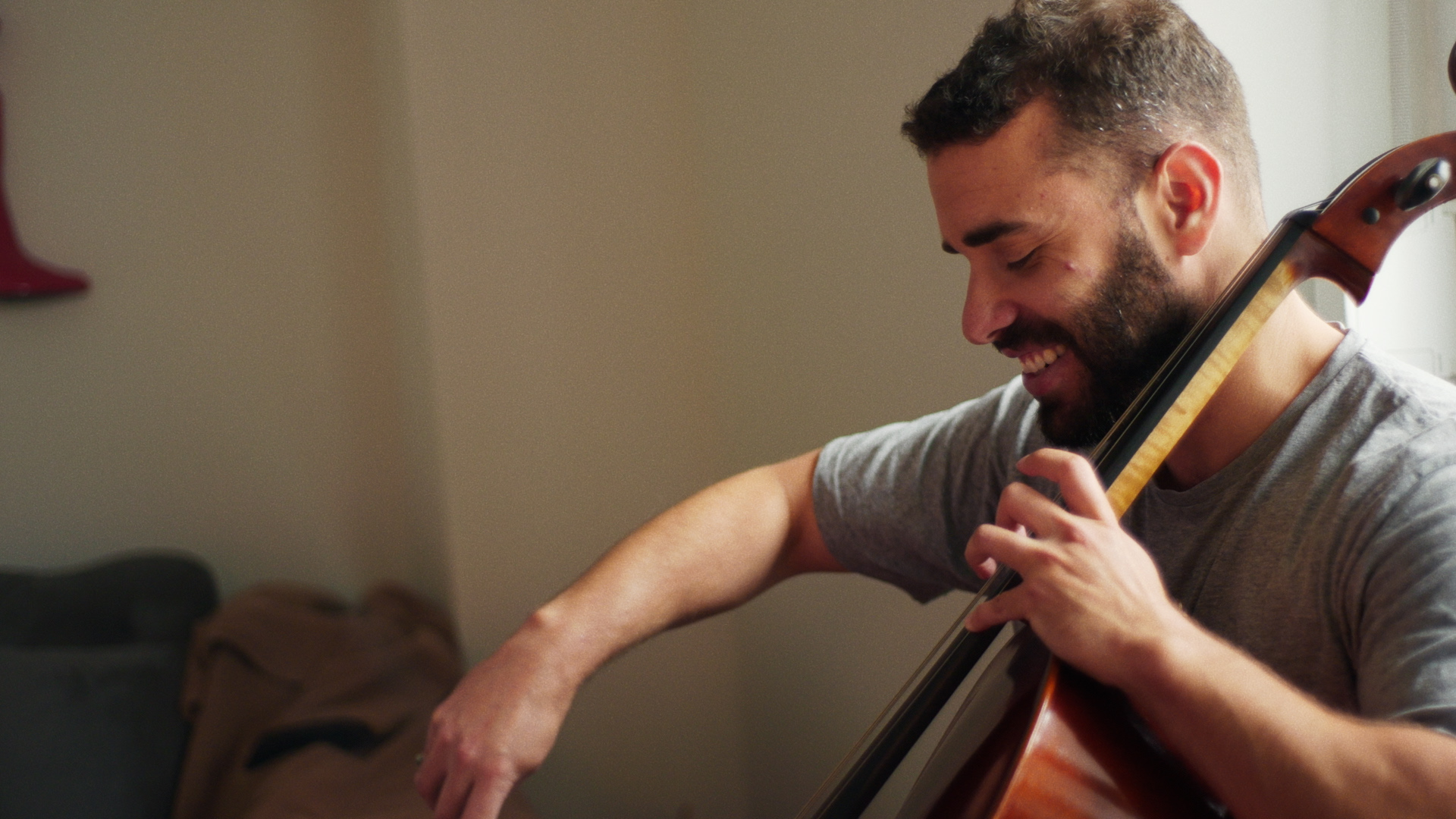
Fado nowadays is a big tourist attraction, no longer the music of the oppressed, is this a difficult issue, for you as a filmmaker?
Justine: I don’t share this view. What interests me as a documentary filmmaker is to observe the present and try to go beyond my own preconceptions. I try to maintain political awareness while resisting any kind of ideological romanticism or reactionary temptations, - such as thinking that the past was always better, that art no longer has the profundity that it once had and so on…
With the developments of transport and the internet, the capitalist phenomenon of tourist consumption has colonized massively and aggressively the landscapes, living conditions, the houses and social customs in the centre of Lisbon, as it has globally. Fado was never going to be saved from this, but this doesn’t mean that their voices have disappeared or that they are not resisting.
For example, let’s remember that Fado is also a ritual based partly on the constant myth of its own disappearance, of a mythical lost authenticity, that existed in the remote past, when people and their meetings and feelings were still ‘real’. Fado always sang of its own saudade. Already in the 1860s some Portuguese intellectuals were protesting against the adulteration of Fado!
We can consider that there never existed just one Fado, but several which mixed and influenced each other, various versions, along with different ideological and economic appropriations of Fado. There is no way to filter out either a supposedly ‘authentic’ fado situated in a lost past, nor another contemporary supposedly ‘false’ Fado for tourists.
The current accelerated massification of tourism is not a new phenomenon. In the ‘50s and ‘60s during the ditadura, what is referred as ‘traditional Fado’ was already an artificially codified form of merchandise, intended to sell a specific image of the nation of Portugal.
Going further back Fado was a form of merchandise when it was sung by the prostitutes in the Mouraria. Their actual bodies were goods for hire. In the second half of the 19th Century, Fado was both the music of the oppressed and a Bohemian tourist spectacle enjoyed by the sons and husbands of the upper classes seeking the company of women of the ‘bad life’.
I don’t consider that Fado is less profound or sincere through being sung for audiences of tourists. Whatever the level of tourist colonization, people don’t stop being people, and voices until now have not stopped arising from bodies.
Fado is transmitted in the film as I received it, in its depth, present and moving, lived by the people who sing or listen to it. One way of experiencing Fado doesn’t invalidate the others.
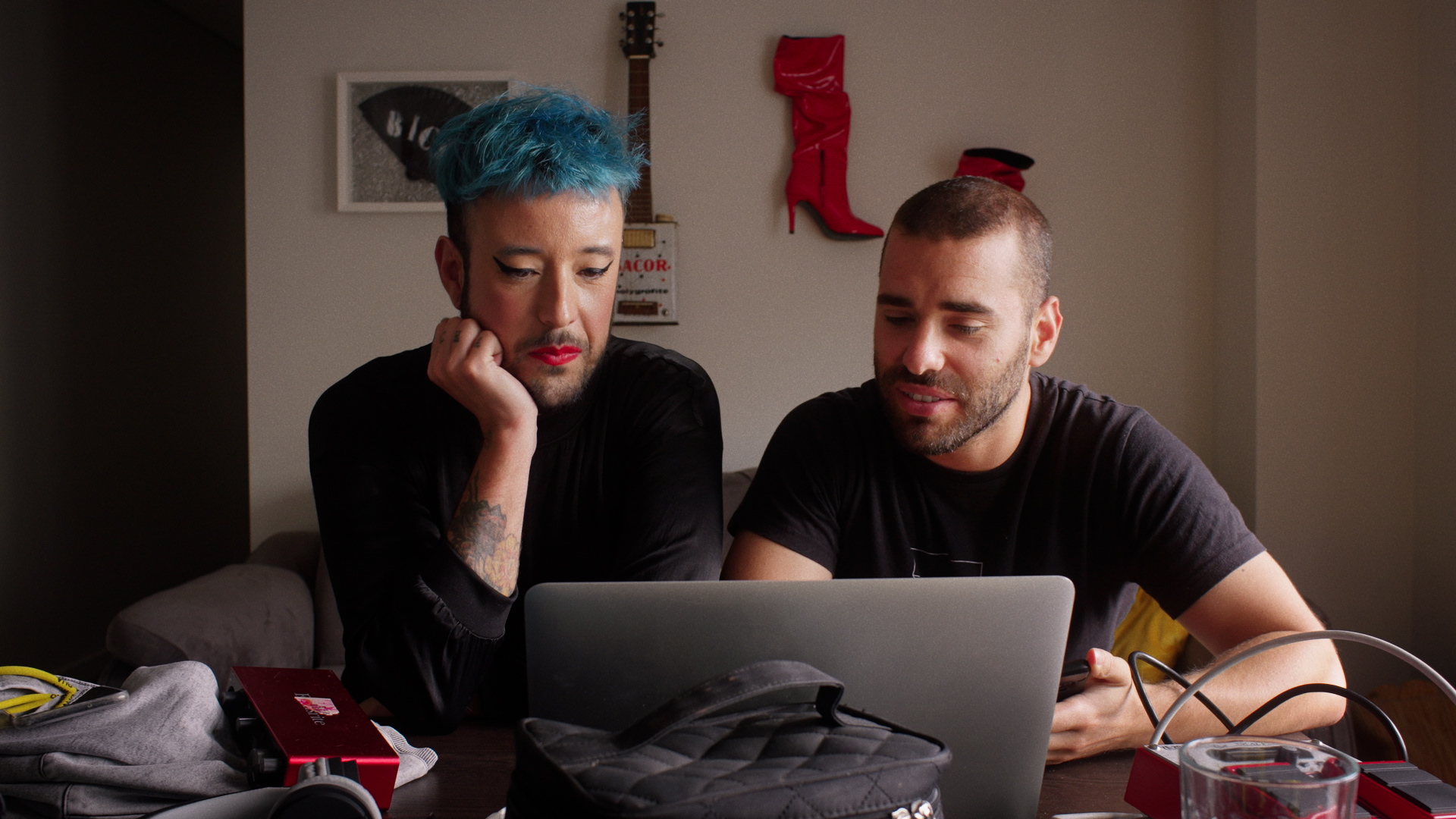
Lila, there was someone who kept asking “What’s your real name?”, which raised a complicated issue, denying your new identity, but is there not a genuine curiosity when someone changes their identity about the before and the after?
Lila: I understand the curiosity and where it comes from. We often have narratives in mind that we project onto other people, especially about gender. People want to know if there was a before and an after, with names changed or even bodily changes.
I too can be very curious about the life of someone I’m not intimate with, but I’m not going to ask these sorts of questions because intimacy and trust have to exist first, and that goes for all of us. But a lot of people don’t feel shy to ask these questions of trans people, even though it’s a very delicate subject. Maybe people should consider if they are entitled to ask such questions. In the incident I described, this person kept insisting and obviously felt entitlement that I did not give her. We often allow ourselves to fall into these micro-power dynamics, and I thought it was important to speak about it while Justine was shooting. Even though I know that this person was not deliberately trying to disempower or make me uncomfortable. You may say you just want to get to know me, but you need to understand that those questions and the bodies they come from, hold power. It’s just a reminder to reflect on our own curiosities.
It happened with a boyfriend too. We got together after several drunken nights, but it was always difficult for him to accept that it had happened and that he had wanted it, so the relationship became very toxic. I was in the position that many gay and especially Trans people experience, of being treated as an exotic object. After the relationship ended, I was able to see that he was really drawn to me, but he couldn’t get over the Queer Phobia in his head which stopped him seeing me as an equal human being. He was always invested in this dynamic of alternately experimenting and then rejecting.
Fado originated in the margins, yet now the traditional Fado culture won’t accept the people who are among the currently marginalized. Does this provoke irony or anger for you?
Lila: Our experiences during the 7 years of Fado Bicha, and the dialogue we’ve had of always thinking and discussing between ourselves allowed me to have a wider understanding of the history of Fado and of Portugal and of art, and how it’s all interconnected. It bothers me that we don’t get many bookings, and that a lot of hate is directed at us, but having a better understanding helps me to navigate without losing myself or getting too angry or feeling rejected. I value our work and it would be difficult for any artist. It’s endearing in a way and it’s the experience of many artists through the centuries, its meaning goes beyond and it’s valid for other artists too.
We do what we do, and the biggest impact is on ourselves and people around us; we leave the analysis to others.
The impact is not just people appreciating the music, it’s connected to the experience of being Portuguese, to experiences of violence, rejection and feeling unseen, and I love knowing that. I feel it can only be a good thing because I feel I’m doing it from a good place, and especially it’s a place of resistance to the course that western society is taking. We couldn’t do it any other way.
Have you performed in other countries or does your process work better here?
João: People in other countries don’t have the prejudices about what Fado should be like. Lila explains the lyrics in English and people are very moved because they understand the Queer experience of being pushed to the margins. We take this immaterial heritage that has been marginalized for 200 years and communicate it through the medium of our bodies. It’s very simple and I think it’s very beautiful and deep. People respond to authenticity.
But Fado exists as an image abroad and Fado singers who are barely known here have played 10 shows in Japan, so it’s easier than for a band like ours, but we’ve played in Brazil, Finland, Iceland, France, Denmark, Spain, the USA. Abroad people connect to Queerness, to freedom or our humour or our visual presentation, as long as they understand English or Spanish, or in Portuguese emigrant communities. Second generation Queer people abroad have had very limited experience of contemporary Portugal, and for them being Queer is something separate from being of Portuguese descent. After our shows people have said how touched they were to be able to connect their Queerness with being Portuguese.
The word Bicha has been adopted by gays despite its previous pejorative use - like Queer in English?
Lila – The adoption of the word by our community as a form of empowerment and identity, especially in Brazil, is much more recent than Queer, and it is still used in a derogatory way, even by some hetero-normative people within the gay community against non-binary people. And it is the strongest slur that a straight person can use against us. I identify first as Bicha, then as Trans. Queer is an umbrella term that many non-straight people including lesbians will identify with, but Bicha is not so far accepted so widely, although cis-gay men are starting to adopt it.















